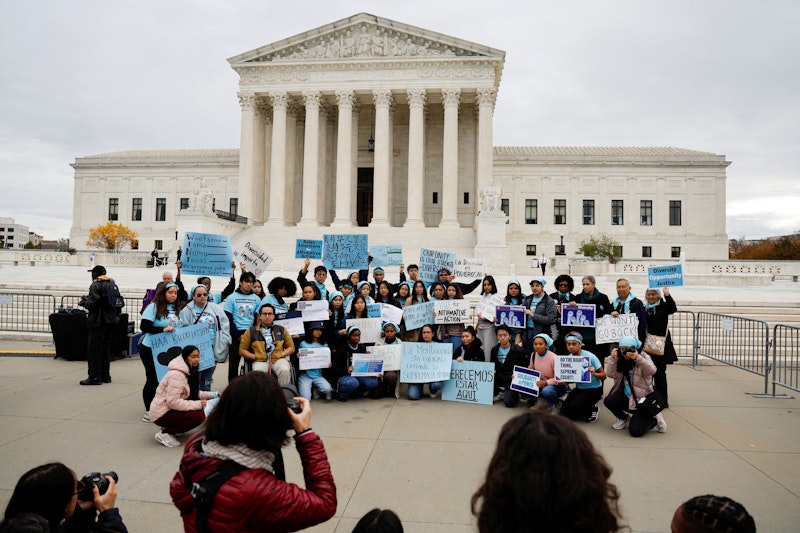The Supreme Court may end colleges' ability to consider race in admissions. The court will rule on Students for Fair Admissions (SFFA) v. University of North Carolina and Students for Fair Admissions v. Harvard University this month and likely ban race-based affirmative action in college admissions.
That’s good. Affirmative action is a bad policy and it disproportionately benefits a group who weren’t victims of historic oppression in America: recent black immigrants, including wealthy ones from countries like Nigeria.
Typically, affirmative action attempts to benefit blacks, Hispanics, and Native-Americans at the expense of whites and Asians. Usually, two arguments exist against racial preferences. One is that it’s bad for the so-called beneficiaries of affirmative action because it puts them in positions where they’ll fail.
Sometimes this is true, and it can hurt people in higher education. It’s one reason why blacks and Hispanics have higher college dropout rates. And when people drop out of school, they’re unlikely to return to any school and finish. Some students are better off going to a school that appropriately fits their aptitude, and the so-called soft bigotry of low expectations idea from George Bush and other right-wingers has some merit. Affirmative action does benefit other blacks and Hispanics, like those who graduate from elite schools that reject whites and Asians with similar SAT scores.
The other right-wing argument is that affirmative action hurts Asian students. Although this is true, Asians aren’t only one group that it hurts. The other is white people, who comprise not only the majority of the United States but also a majority of right-wingers and opponents of race-based affirmative action. No mainstream politician will claim to oppose it for being anti-white, although they’ll say it’s bad for blacks and Asians. There’s some truth to all of these arguments and when it comes to elite colleges, African-Americans aren’t benefitting from affirmative action as much as one might think.
Harvard University's average SAT scores indicate that they have lower academic standards for black and Hispanic students than for whited and Asians. Their admissions data also shows that they value having racial diversity on campus. The Harvard Class of 2026 is 14.4 percent black, according to The New York Times. Blacks comprise about 12 percent of the American population. Yet, 10 percent of black people in America are immigrants; they’re not the descendants of American slaves or grandchildren of the victims of Jim Crow-era segregation. Given that America’s system prefers educated and wealthier immigrants, especially those who hail from countries outside of Latin America, there are rich African immigrants in the United States. About 41 percent of all black students at Ivy League colleges are African immigrants, according to The Harvard Crimson. Yet, if one is trying to check boxes and fill racial quotas, the black child of Nigerian aristocrats counts just the same as the black child born to a single mom on food stamps. It also means that despite being about 1.2 percent of the population, black immigrants likely comprise about 5.9 percent of Harvard's Class of 2026 student body, while African-Americans are likely about 8.5 percent.
What kind of country offers benefits and preferences to people who, in some cases, aren’t even American citizens? Not only is it stupid for a country to put non-citizens first, but with affirmative action, we end up with a racist system that pits different groups of people against one another rather than judging the individual and admitting the most deserving people.
If schools look past superficial characteristics, they could find what matters: diversity of thought and opinion. However, colleges are often hostile to differences of opinion and free speech, especially for those who think there are two genders, men can't get pregnant, human life begins at conception, and affirmative action is unfair. While the children of wealthy Nigerian and Caribbean families won’t dominate admissions at state colleges due to racial preferences, the privileged immigrant element at elite academic institutions is worth considering when thinking about racial preferences in higher education and American society. I hope the Supreme Court thinks it's as ridiculous as I do.

